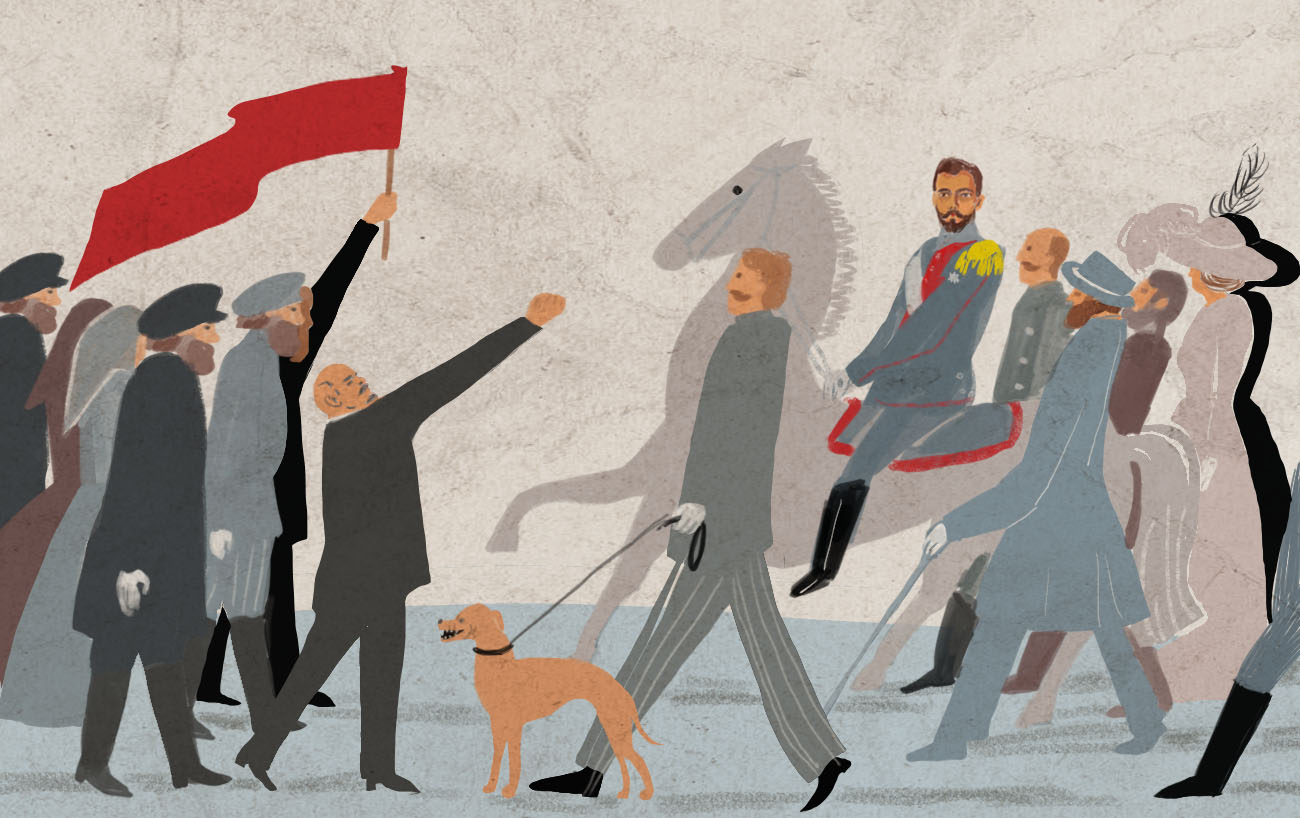
It took more than half a century for the idea of building a worldwide society without poverty or oppression to become discredited.
Ekaterina LobanovaIn today's Russia, if you address a passerby as "comrade" or start discussing the inevitable triumph of the world proletariat, most likely he or she will look at you with surprise. Almost 100 years after the October Revolution when the Bolsheviks seized power and then tried to build communism, the vast majority of people in Russia no longer believe in it. In fact, the Communist Party received a modest 13 percent in the last elections.
Lenin, the Bolsheviks, and the congresses of the wise and all-seeing Party were discarded on the dustbin of history in 1991 with the collapse of the USSR. All that remains today are the red stars on the Kremlin towers, thousands of Lenin statues in public squares, and Soviet insignia that are now more about history and tradition than ideology. While the ideological fervor has petered out, we now recall another time in the early 20th century when it began with enormous enthusiasm.
The 19th century theoreticians of class struggle, Karl Marx and Friedrich Engels, were convinced that a socialist revolution could only take place in advanced capitalist societies where a sizable working class was oppressed by the bourgeoisie.
The German philosophers didn’t take the Russian Empire seriously as a candidate for revolution because it was predominantly agrarian. According to the 1897 census, the peasantry made up 77 percent of Russia’s population. Their advice to Russia’s revolutionaries was to develop capitalism first and then use the forces of the insurgent proletariat to smash it. But things didn't turn out like that.
The 1917 February Revolution toppled the Russian monarchy, and several parties then battled for power in Russia between March and October 1917. The most radical socialists, Vladimir Lenin’s Bolsheviks, emerged as the victors. They promised a nation that was exhausted by the First World War instant relief from their sufferings, and they offered a simple formula for happiness. Peace to the people; land to the peasants; and factories to the workers; but to the bourgeoisie, a horrible death.
"The Bolsheviks were the only political force that keenly sensed and used the social hatred and desire of the masses for a leveling justice," writes historian Alexander Orlov.
This view is shared by Alexander Pyzhikov, senior research fellow at the School of Public Policy at the Russian Presidential Academy of National Economy and Public Administration (RANEPA), who believes that the victory of the Bolsheviks in Russia had nothing to do with Marxism.
"In the late 19th and early 20th centuries there were essentially two Russias," said Pyzhikov. The first, the Russia of the nobility, intelligentsia and bourgeoisie, was no different from other European countries; the representatives of the upper echelons of society were oriented towards capitalism and the Western legal system. The second Russia, which included an overwhelming majority of the peasantry and a significant part of the workers, lived according to quite different rules.
"It was a very patriarchal milieu that largely retained an Old Believer, medieval way of life," said Pyzhikov. "The main institution was the commune; the peasants jointly owned and cultivated the land, and private property was poorly developed."
It was this "second Russia" that was happy to follow the Bolsheviks when they promised to take everything away and share it. "In actual fact, the Russia of the peasants had been gestating Soviet rule for many years," added Pyzhikov. That's why communism triumphed in Russia. It had nothing to do with Russians' devotion to the ideas of Marx.
It took more than half a century for the idea of building a worldwide society without poverty or oppression to become discredited.
"By the Brezhnev years in the 1970s it was clear that the Party nomenklatura had become very remote from the people and was merely trying to cling to power and privilege, and not at all interested in leading the people to a better future," said the historian.
A general disillusionment with the ideals of communism was the catalyst for the collapse of the USSR, which had also fallen prey to serious economic problems.
This article is part of the "Why Russia…?" series in which RBTH answers popular questions about Russia.
If using any of Russia Beyond's content, partly or in full, always provide an active hyperlink to the original material.
Subscribe
to our newsletter!
Get the week's best stories straight to your inbox